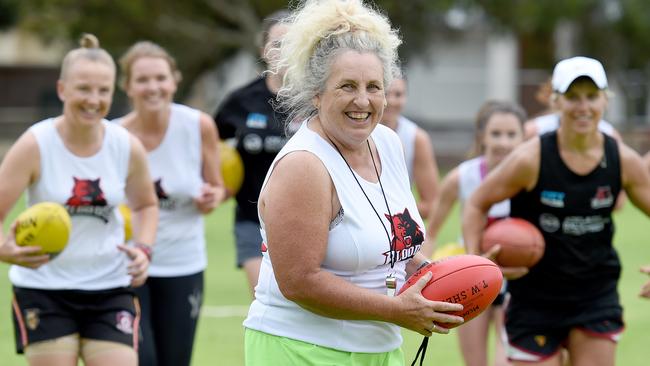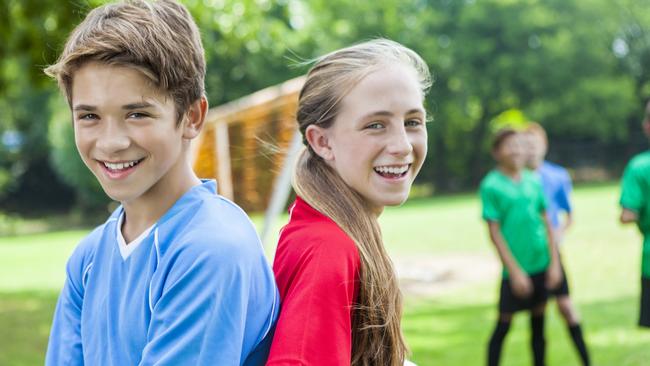‘Match bans for kids don’t work’: Jenny Williams calls on SANFL to find a new fix for bad behaviour
One of Adelaide’s most prominent female sporting figures – an elite coach and psychologist – says banning kids over on-field incidents won’t stop bad behaviour.

SA News
Don't miss out on the headlines from SA News. Followed categories will be added to My News.
South Australian sport Hall of Famer Jenny Williams is calling for a rethink on how match bans are handed out to young sports players for on-field indiscretions.
The elite coach and psychologist, who represented the state in six sports, including lacrosse, cricket and AFL, argues keeping kids away from sport through suspensions isn’t the answer and the focus should be on helping them manage emotions and change behaviours.
“Anger is not an individual issue, it does not go away with fines, suspensions or being told how bad the effect is on others … kids are getting suspensions that are too long and will not change behaviour,” she said.
“When your heart rate goes over the top, into anger or anxiety, it clouds your ability to be able to think and make decisions, people do ‘unthinking things’ like hit someone, or get annoyed at someone … decent people do really stupid things.”

Escalating violence at junior sports has been in the spotlight this week after an ugly melee last Sunday at an SANFL Juniors under-17.5 girls match between Edwardstown and Ingle Farm.
One man was arrested and two junior footballers suspended – a player from each of the clubs receiving one-match bans for striking – while Ingle Farm has withdrawn its team for the remainder of the season.
“For goodness’ sake, sentences and clubs dropping teams completely so kids can’t play anymore? We want to keep young people involved in sport, it should be the best thing in the world for kids, they should have joy,” the daughter of Port Adelaide legend Foster “Fos” Williams said.
Ms Williams said a young player’s psychological development was as important as their physical development and has twice written to the SANFL about her concerns in relation to bans – prior to the most recent, highly-publicised incident.
“I haven’t yet found one of the guys who’ve had a suspension who is a nasty, bad young (person) … what I find is they are kids who have never learnt how to deal with anger,” she said.

She is advocating for players, coaches and clubs to be exposed in group sessions to qualified psychologists who can use “cognitive behaviour therapy and a full profiling system” to help – and for sentences to be suspended.
“This is also part of looking at your junior judicial system … football has a unique opportunity to change lives,” she wrote in one letter to the SANFL.
“Of course there should be penalties but there (should also) be an opportunity to attend several courses and have to do behavioural activities for improvement signed off by a significant coach plus (a) behavioural specialist.
“(And to) allow for a suspension of the number of matches which is only triggered if they either fail to do the course, the behaviours expected or commit another offence.”
Ms Williams said while current policies were well-intended they weren’t working.
“Instead of just putting punitive things on, we need to help (young people) get better … (create a) checklist of things they need to practise at training.”
In response to her letters, the SANFL said it had partnered with anti-violence charity The Sammy D Foundation, and would continue to utilise the SANFL independent tribunal.


